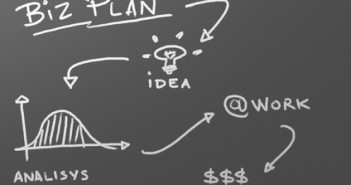Futures trader Ed Seykota was first profiled in the original Market Wizards book by Jack Schwager. Among many things, the book revealed Seykota as being one of the best traders of in the world and a mentor to many other successful traders (including Bruce Kovner and Michael Marcus).
The book also showed Seykota to be an early pioneer of computerized trading and an expert in his field. Perhaps most interesting, however, are Seykota’s unique perceptions on what it is to trade, and how psychology impacts trading results.
Here are some quotes taken straight from the great analytical mind that is Ed:
“Systems trading is ultimately discretionary. The manager still has to decide how much risk to accept, which markets to play, and how aggressively to increase and decrease the trading base as a function of equity change.â€
“Fundamentals that you read about are typically useless as the market has already discounted the price, and I call them “funny-mentalsâ€. However, if you catch on early, before others believe, you might have valuable “surprise-a-mentalsâ€.â€
A Guest Post by FXTM
“The key to long-term survival and prosperity has a lot to do with the money management techniques incorporated into the technical system.â€
“The elements of good trading are: 1, cutting losses. 2, cutting losses. And 3, cutting losses. If you can follow these three rules, you may have a chance.â€
“Luck plays an enormous role in trading success. Some people were lucky enough to be born smart, while others were even smarter and got born lucky.â€
“Having a quote machine is like having a slot machine at your desk – you end up feeding it all day long. I get my price data after the close each day.â€
“I don’t judge success, I celebrate it. I think success has to do with finding and following one’s calling regardless of financial gain.â€
“I intend to risk below 5 percent on a trade, allowing for poor executions.â€
“Dramatic and emotional trading experiences tend to be negative. Pride is a great banana peel, as are hope, fear, and greed. My biggest slip-ups occurred shortly after I got emotionally involved with positions.â€
“In order of importance to me are: 1. the long term trend, 2. the current chart pattern, and 3. picking a good spot to buy or sell.â€
†The markets are the same now as they were five to ten years ago because they keep changing – just like they did then.â€
“A losing trader can do little to transform himself into a winning trader. A losing trader is not going to want to transform himself. That’s the kind of thing winning traders do.â€
Further reading:Â 5 most predictable currency pairs



